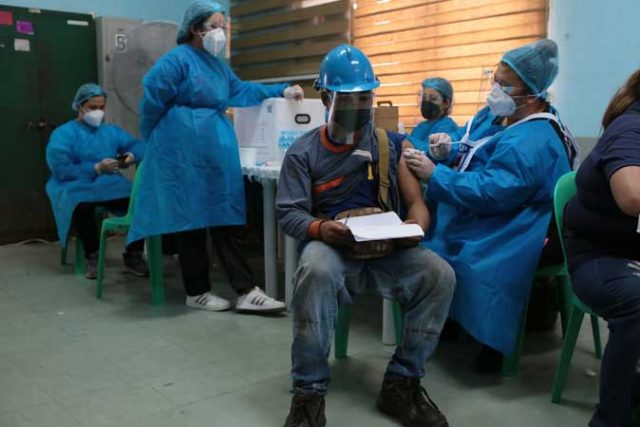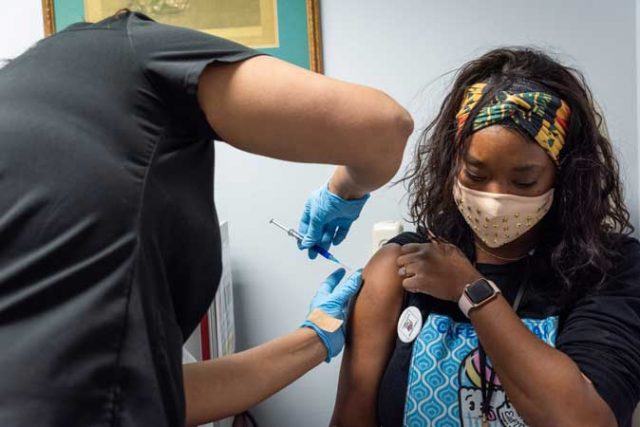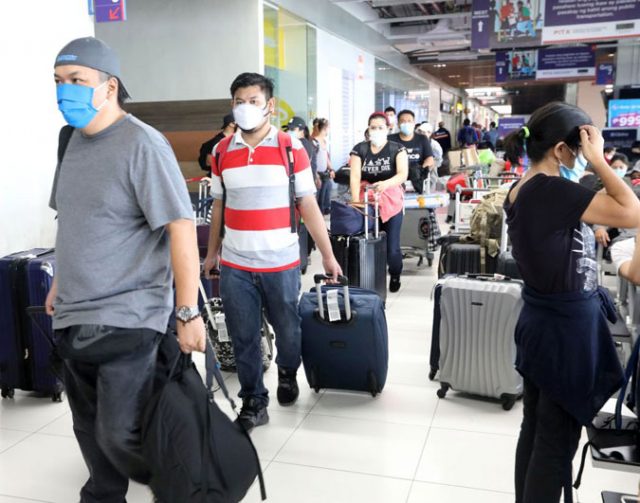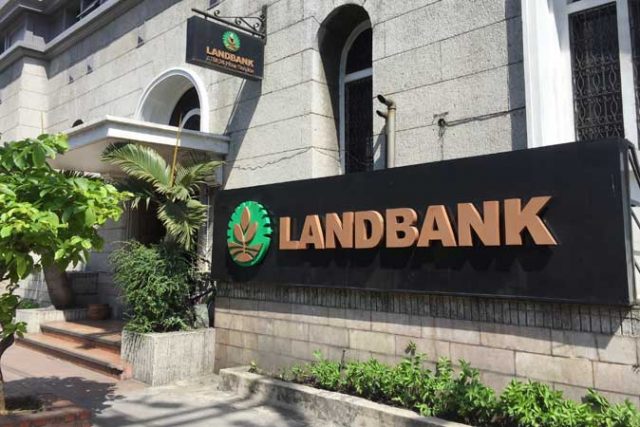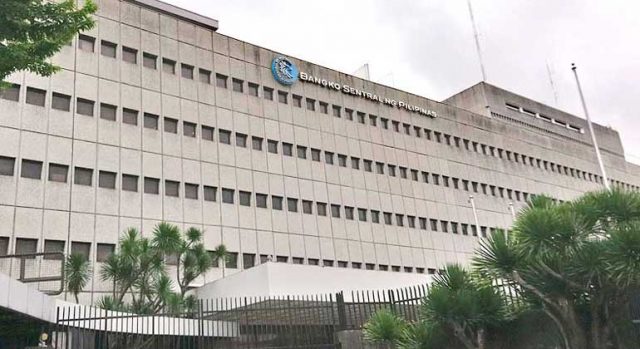Manila Electric Co. (Meralco) said it not disconnect customers in Cavite, Rizal, and Lucena City after the government announced that these areas are under modified enhanced community quarantine (MECQ). Meralco had already announced that it would discontinue disconnection activities in areas which had been previously placed under the stricter enhanced community quarantine (ECQ).
This as banks have adjusted their working hours, and a transport company has assured customers of continued service throughout the ECQ.
“Meralco will also suspend disconnection activities in these areas from Aug. 6 to 15,” the distribution utility said in a statement issued on Friday. “Meralco will continue vital operations such as meter reading, bill delivery, and will continue work around the clock to serve its customers, following an order of the Energy Regulatory Commission,” Meralco said.
This comes two days after the Manuel V. Pangilinan-led firm announced that it was suspending disconnection activities in Metro Manila and Laguna which were placed under strict lockdown.
Meralco previously said that its business centers (BCs), which accept payments and provide customer assistance, will operate with a skeleton workforce because of the rising number of coronavirus disease 2019 cases. Its BCs are open from 7 a.m. to 3 p.m. from Monday to Friday, and 7 a.m. to noon on Saturdays.
Customers can contact Meralco through its website, social media pages, hotline, or mobile app. However, they must first book an appointment through the online customer appointment system before heading to the firm’s designated BCs.
Meralco’s controlling stakeholder, Beacon Electric Asset Holdings, Inc., is partly owned by PLDT, Inc. Hastings Holdings, Inc., a unit of PLDT Beneficial Trust Fund subsidiary MediaQuest Holdings, Inc., has interest in BusinessWorld through the Philippine Star Group, which it controls.
GRABCAR still available
Meanwhile, ride-hailing and food delivery firm Grab Philippines has announced that its GrabCar services will continue during the ECQ, as will its food delivery, shopping, and messenger services — GrabFood, GrabMart, and GrabExpress.
In a statement released Friday, the company also said that it has come up with GrabCar Bayanihan, “a dedicated fleet composed of vaccinated driver-partners and priced 15% lower than regular GrabCar rides, [which] will continue to provide mobility solutions going to and from vaccination sites to support the ongoing vaccination efforts against COVID-19.”
BANKING HOURS
Several banks also announced adjusted banking hours for their branches in areas covered by ECQ and MECQ, while others are waiving service fees for the duration of the lockdowns, which run from Aug. 6 to 20. Most of the banks are urging their customers to use online banking services to avoid COVID-19.
Security Bank, for instance, said that its branches under the two strictest quarantine levels would observe shortened banking hours “until further notice.” Those branches in areas under ECQ will be open from 9 a.m. to 2 p.m., while those in areas under MECQ will be open from 9 a.m. to 3 p.m. Branches in areas under General Community Quarantine or GCQ, which is the second to the most lenient quarantine level, will maintain regular banking hours – 9 a.m.to 4 p.m. Some branches though may have different hours depending on the operating hours of the malls that they are in or local ordinances, said Security Bank in a statement.
Meanwhile, BPI announced on its Facebook page that select BPI and BPI Family Savings Bank branches nationwide will remain open, but with shortened business hours. The complete list of open branches can be found in this link: https://bit.ly/branchadvisory.
Philippine National Bank (PNB) is waiving the transfer fees for all purely domestic transactions of InstaPay and PESONet during the ECQ until Aug. 20. This, it said in a statement, “is to encourage more customers to stay at home amidst the ongoing health concerns brought by the new Delta variant of the corona virus.” While all domestic transfer fees for InstaPay and PESONet are waived, remittance fees still apply for foreign overseas transfers, it said.
PNB branches will remain open from Monday to Friday at 9 a.m. to 3 p.m. during the ECQ. Bank customers can now also open their own PNB account online via the official website: www.pnb.com.ph. For those who may need cash, PNB will be deploying its mobile Bank On Wheels (BOW) to make cash accessible for customers in Metro Manila and Luzon. The BOW schedules are available on the bank website.
While most BDO branches will stay open until 3 p.m. throughout the ECQ, certain branch operating hours may be affected by LGU guidelines, said the bank, as it encouraged customers to use its digital channels.
Metrobank will have shortened banking hours nationwide until Aug. 20, with all branches open from 9 a.m. to 2 p.m., Mondays to Fridays. It noted that “local community measures may cause branch banking hours and cut-off times to be adjusted without prior notice,” and suggests checking with the LGU announcements or bank branch to confirm. The Metrobank website maintains a list of open branches which is updated regularly.
The Development Bank of the Philippines (DBP) announced that its branches in areas placed under ECQ and MECQ will be operating on shortened banking hours, from 9 a.m. to noon, “unless otherwise declared or endorsed by the concerned LGUs, local health authorities, or local bankers’ associations.” The DBP website has a complete list of open and closed branches and their operating hours.
All China Bank branches under ECQ will be open from 9 a.m. to 2 p.m., with check clearing cut-off time at 1:30 p.m. For branches under MECQ, banking hours are until 3 p.m., with check clearing cut-off time at 2:30 p.m. All other branches under the laxest levels of quarantine — GCQ and MGCQ — are open until 3:30 p.m. with check clearing cut-off time at 3 p.m. The bank’s website maintains a complete list of branches in areas under ECQ.
RCBC branches in ECQ areas will have shortened banking hours from 9 a.m. to 2 p.m. until Aug. 20.
EastWest bank’s regular hours have been modified to 9 a.m. to 3 p.m., Mondays to Fridays, until Aug. 20 for branches in Metro Manila, Bulacan, Cavite, Laguna, and Rizal, following the implementation of ECQ. Weekend banking is available in select areas which can be checked here: https://bit.ly/EastWestWeekendBanking
The operating hours of UCPB branches under ECQ have been shortened – they are now open from 9 a.m. to 1 p.m. Some provincial branches have also had their hours shortened due to LGU directives. The complete list of UCPB branches and their schedules under quarantine are available here: www.ucpb.com/branches/.
The banking hours of the NCR branches of Asia United Bank (AUB) will be 9 a.m. to 3 p.m., with the check clearing cut-off at 2 p.m., until Aug. 20.
Robinsons Bank branches in ECQ areas will have shortened banking hours. Visit RBank website for the branch schedule at https://bit.ly/ECQRBankSchedule.
PBCOM is also suggesting customers check its website for the list of branches in quarantine areas and their corresponding schedules.
All PSBank branches nationwide will have shortened banking hours from 8:30 a.m. to 2 p.m., Monday-Friday, until Aug. 20. Clearing cut-off for check deposits will be at 2 p.m..
Union Bank of the Philippines (UBP) branches in ECQ areas will have shortened banking hours. The branches at Cardinal Santos Hospital, Medical City (Ortigas), St. Luke’s QC, and Medical Cener Paranaque will be open from 9 a.m. to 3 p.m. The branches at Dasmarinas (Binondo), Ayala SSS in Makati, Insular Ayala Paseo (The Ark), UN Ave. In Manila, Intramuros, Greenhills, Malabon, Kalookan 9th, Alabang Country Club, and Dagupan will all be open from 9 a.m. to 4 p.m. The branches at BGC Uptown Mall, Eastwood, Alabang Town Center, and St. Francis Shangri-La will be open from 10 a.m. to 4 p.m. The branch in Baliuag will be open from 9 a.m. to 2 p.m.
Mobile wallet GCash is waiving all Padala fees of its new service, GCash Padala, until Aug. 20. — Angelica Y. Yang, with input from Luz Wendy T. Noble


